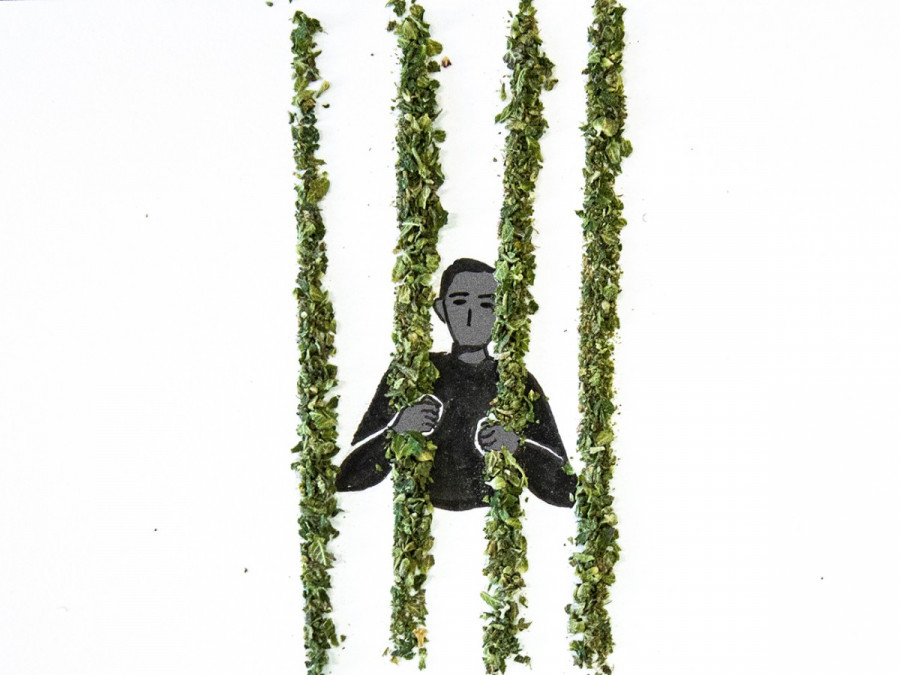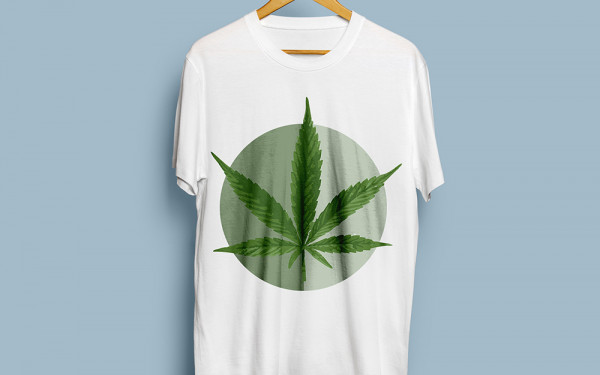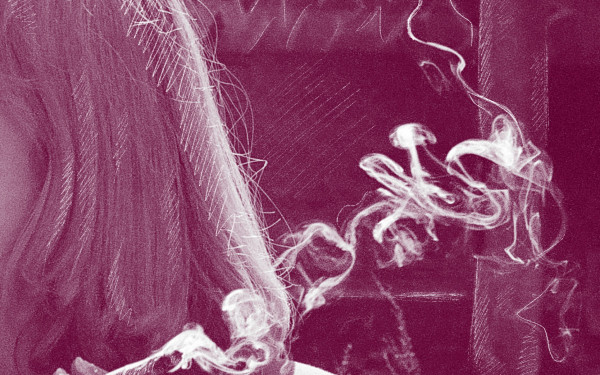Canada’s Post-Legalization Pardon Promises Don’t Go Far Enough
Marginalized Communities Continue to Be Affected by Cannabis Criminalization
Last fall, after nearly a century of prohibition, Canada became the first country in North America to fully legalize marijuana.
In June 2018, Prime Minister Justin Trudeau announced that, “We will soon have a new system in place, one that keeps cannabis out of the hands of our kids and keeps profits away from organized crime.”
But with the Canadian cannabis industry poised to become a revenue-generating juggernaut, the lingering issue of how to deal with the thousands of Canadians left with criminal charges remains unresolved.
Reena Rampersad is a volunteer coordinator with the Campaign for Cannabis Amnesty, an Ontario-based advocacy organization dedicated to pressuring the federal government to fully expunge the records of all non-violent pre-legalization offenders.
“Considering the price that has been paid by the people that have created the industry for the country and for the people that are making the money from it now, I definitely think it’s unfair that this process is being handled the way it is,” Rampersad told The Link. “It’s really funny because the government used that whole pardons announcement as a little bit of a publicity stunt to gain popularity with the general public.”
When legalization was announced by the Liberal government, it came with a commitment to enact a new policy of amnesty for pre-legalization offenders. Public Safety and Emergency Preparedness Minister Ralph Goodale said legislation streamlining the pardon process would be introduced before the end of 2018. This legislation, however, has yet to materialize.
Rampersad said that a lot of people don’t have a real understanding of pardons and what their implications are.
“I think the government kind of played on that ignorance to present themselves as heroes,” she said. “They were able to say, ‘We’re issuing pardons for anyone who has cannabis convictions,’ but what’s really new about that? Nothing.”
Trudeau’s statement unveiling Bill C-45 was a recognition of historical injustices and a pledge to rectify them. However, Trudeau said in an interview with Vice in May 2017 that his father, former prime-minister, made the possession charges against Justin’s late brother Michel “go away.”
“We were able to do that because we had resources,” Trudeau told Vice at the time. “My dad had a couple connections and we were confident that my little brother was not going to be saddled with a criminal record for life.”
Trudeau also said he smoked cannabis recreationally while he was a sitting member of parliament, an admission for which he has not faced legal consequences.
This person also currently heading the Liberal party, the same party Rampersad says is downplaying the difference between a pardon and an expungement–a difference she says is signifigant.
“A pardon is essentially the relabeling of a conviction on your record. It doesn’t mean anything,” Rampersad explained. She said as it stands at this moment, a person has to first serve their sentence and then wait for three to five years after being released before they can even apply for a pardon.
“That’s a very convoluted and expensive process,” she said. “They have to go obtain their record, then put in their request, and obtain affidavits and all kinds of other things.”
“The government has responded that they will explore streamlining the process and waiving these fees, but the fact is, a pardon is still going to remain on their record, so this does nothing,” said Rampersad. “An expungement, on the other hand, erases it entirely. It wipes your record clean.”
During a recent interview with CTV News, Goodale addressed the expungement question. “We obviously recognize the disproportionate impact that convictions for simple possession has had on people’s lives,” he said. “Expungement historically has been used only in one case, and that is to correct a situation where the law itself—not the application of the law but the law itself—was in violation of the Canadian Charter. It violated human rights. And that’s why we used expungement in that case, when the Criminal Code specifically, and explicitly, discriminated against gay people.”
What Goodale’s equivocating statement translates to is that because persecution of LGBTQ+ people in Canada by law enforcement was specifically directed by an identifiable law, people from that community were deserving of the blanket record expungement that Canada belatedly issued in June 2018 to violators of “sodomy laws,” later repealed in 1969.
In other words, although Canadian law enforcement engaged in widespread discriminatory policing of cannabis, because systemic prejudice was a manifestation of widespread individual prejudice (as opposed to the other way around), record expungements aren’t warranted in the case of cannabis offenders or victims of disproportionate enforcement, according to Goodale.
In fact, because Canada doesn’t collect data on the relationship between race and arrests in a standardized fashion, institutional racism within Canada’s police apparatus is difficult to quantify.
However, through ground-breaking research conducted by University of Toronto criminologists Akwasi Owusu-Bempah and Alex Luscombe, racial bias in cannabis arrests in multiple citIes across Canada was clearly demonstrated for the first time in April 2018.
The investigation, published by Vice, was based on data obtained through access to information requests from multiple police departments. The data showed that enforcement of cannabis law was universally less rigorous against white people than against other racial groups.
“This data is so powerful because it confirms the speculation or the idea that Canada’s war on drugs has been so heavily racialized,” Owusu-Bempah told Vice.
In Halifax, for instance, the data showed that Black people were five times more likely to be arrested for cannabis possession than white people, while for Indigenous people in Regina, the number rose to nine times more likely.
Among the cities which provided data for the Vice investigation (Regina, Edmonton, Calgary, Halifax, Vancouver, and Ottawa), data showed conclusive evidence of widespread racially disproportionate enforcement in all cities.
Another investigation conducted by the Toronto Star in 2017 demonstrated a similar trend in Toronto, where Black people with no criminal history were found to be three times more likely to be arrested than their white counterparts for cannabis possession.
“My dad had a couple connections and we were confident that my little brother was not going to be saddled with a criminal record for life.”
— Justin Trudeau
Sacramental Use
Donisha Prendergast was born in Jamaica and is a practicing Rastafarian. She lives in Toronto and is an outspoken advocate of restorative justice for communities that have been disproportionately targeted by law enforcement during the decades of cannabis prohibition here in Canada. She also happens to be the granddaughter of Bob Marley, the most recognizable Rastafarian of all time.
“[The Rastafari] movement started in Jamaica in the 1930s, and was heralded by the coronation of Haile Selassie, King of Ethiopia, and what he represented during the time of colonialism,” Prendergast explained to The Link. “Rastafari is an evolving cultural movement that seeks to right the wrongs of colonialism by holding people accountable to their own evolution.”
When asked about her views on the recent legalization of recreational cannabis here in Canada, she said, “It’s an emotional topic because, for us, cannabis is a sacrament. For the world right now, it’s being used ‘recreationally,’ and that in itself is contrary to how we want to see the world consume this plant. We look at this plant as a sacrament, not as something for recreational use. Cannabis as a sacrament has helped me to gain more clarity on my spiritual journey and to make hard decisions. It’s a way of getting closer to the idea of God, to the idea to a higher self.”
To more fully contextualize the issue of sacramental use and the persecution of members of the Rastafari faith, it is important to examine the history of the Rastafari movement, which began with a man named Leonard Percival Howell. Born into an Anglican family, Howell left Jamaica, eventually ending up in New York City, where he was influenced by fellow Jamaican Marcus Garvey, inspired by black nationalism and the Pan-African movement.
When a Regent named Ras Tafari Makonnen ascended to the throne of Ethiopia and was crowned Emperor, known as Emperor Haile Selassie, some believed this to be the literal fulfillment of Garvey’s prophecy, “Look to Africa, when a Black king shall be crowned, for the day of deliverance is at hand.”
Preaching a message of Emperor Selassie’s divinity on the streets of Kingston, Howell soon developed a following, and came to be known as “the first Rasta.”
After buying a large parcel of land outside of Kingston, Howell broke ground on a project he called “Pinnacle.” Drawing his inspiration from both the Pan-African and Ethiopian movements of the time, it was at Pinnacle that Howell sought to establish a communal, economically independent, and agricultural community.
One of the crops the community cultivated was ganja—the Sanskrit name for cannabis. The plant was widely used by Howell and his followers as sacramental; smoking it is ritualistic, and provides a spiritual connection.
The ganja trade, though illegal throughout the British Empire, was a lucrative one, and Howell saw it as an economic means for autonomy and self-determination for the citizens of Pinnacle. By the 1950s, Pinnacle was an independent and economically robust community.
Eventually police raided Pinnacle, sending Howell and his followers to jail, hoping to end popularity towards Howell and the Rastafarian movement. Following this, decades-long of state repression against the Rastafarians continued.
In recent years, Prendergast has organized an online campaign called Occupy Pinnacle that seeks to preserve the original site of Howell’s community, as the property is now under threat of acquisition by developers. But here in Canada, she says the persecution of her community has continued, and claims of sacramental use were never acknowledged as justification for exemption from previous law.
“I support the movement for expungement, but it’s not enough,” said Prendergast. “You’re talking about families that have been broken up. You’re talking about wealth creation opportunities that were interrupted, destabilized and destroyed.”
Along with many others who were active in the legalization movement, Prendergast also expressed indignation at some of the emerging key players in the Canadian cannabis industry. “You have former members of the police force that are now set to partake in the legal cannabis industry,” she said. “Come on, really?”
One particularly controversial figure in the industry is Julian Fantino. While serving as Toronto Police Chief and later as Ontario Provincial Police Commissioner, Fantino left with accusations of interfering with an anti-corruption task force.
Afterwards, as a Conservative Party MP, Fantino supported mandatory minimum prison sentences for home-growing as few as six cannabis plants.
However, following a rather dramatic change of heart, he has now partnered with former RCMP deputy commissioner Raf Souccar to form Aleafia Health Inc., which operates a network of “health delivery system” clinics and has now expanded into cannabis farming.
Fantino, who in October 2015 stated via Twitter, “I am completely opposed to the legalization of marijuana,” now stands at earning $1.2 million in revenue from it.
The Need for Equity
It is estimated that 500,000 Canadians currently have a criminal record as a result of being charged with the simple possession of cannabis. While those with the resources and social connections necessary to capitalize on the cannabis gold rush are quickly consolidating the market and making a fortune, many wonder what will happen to the thousands upon thousands of people who have had their lives disrupted by cannabis prohibition, especially those from disproportionately targeted communities, and how do we go about achieving something that resembles “justice” for them? Lawmakers in California may have an answer.
According to the American Civil Liberties Union, African-Americans in the United States are nearly four times more likely to be arrested for marijuana-related offences than whites, while marijuana use between the two groups is roughly the same.
Recreational cannabis was legalized in California on Jan. 1, 2018. Across the bay from affluent San Francisco, the predominantly African-American city of Oakland has long been plagued by poverty, and its residents have been among the hardest-hit victims of the drug war.
It was with this in mind that Oakland legislators proposed a bold new approach to regulating the nascent legal cannabis industry in their community: the Cannabis Equity Program.
This program, which fast-tracked victims of disproportionate enforcement into the exploding cannabis industry, sought to provide legitimate wealth-generating opportunities for communities most in need.
In May 2018, the California Senate passed Bill 1294, which will take the equity program concept statewide. Speaking from the senate floor, Steven Bradford (the bill’s author) argued, “Although California isn’t the first state to legalize the adult use and sale of cannabis, we can be the first state to do it right—by including those who were once punished, but can now contribute.”
Here in Canada, the Liberal government has yet to pass a bill amending the federal policy on pardons for those with cannabis convictions, though they promised to do so by the end of 2018. The New Democratic Party tabled Bill C-415 which proposes expungements, but the bill has yet to be voted on.
While an equity program is not something available to Canadians, Canada is moving towards further legalization later this year, with edibles coming to our legal market. Consultations on edibles have been hosted by the government in major Canadian cities to address public concern. With the push for more products available in the recreational and medical industry, Canada’s intentions for amnesty, once promised last fall, are still not in the foreseeable future.







